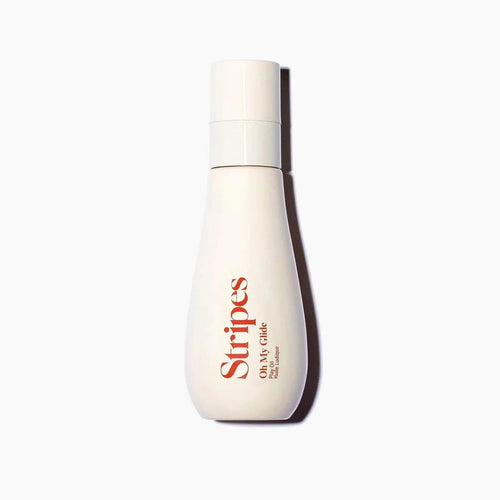In our mid-40s, some of us may start to notice changes to our hair and nails. Our hair isn’t as thick or doesn’t look as lustrous as before, and our nails, usually capable of remaining intact while prying open lids and banging against tough surfaces, are getting brittle and starting to crack.
Dry hair, thinning hair, uncooperative hair — it may all be part of our changing hormones, but it doesn’t make it any more fun to deal with.
We want to show the world the most vibrant version of ourselves, and our hair (and nails) can be a big part of that.
Menopause and thinning hair: What causes it?
In perimenopause and menopause, there’s a steep dropoff in estrogen, which keeps hair in the growing phase. Decreased collagen and decreased oil production (this comes with aging) can lead to a drier hair and scalp.
How can I deal with dry and thinning hair during perimenopause and menopause?
If your hair is dry and thinning, there are a couple of ways to tackle it.
Omega-3s. “Omega-3 fatty acids can help keep scalp skin healthy,” says Zand. “Consider fish oils, evening primrose oil, black currant seed oil, flaxseed oil, and chia seed.”
Avoid yanking styles and habits. Find styles and hair bands that don’t yank or pull on your hair. Loosening your ponytails and easing up on tight braids can make a difference. When you find yourself absentmindedly tugging and twisting your hair, stop.
Tweak your hair routine. Try a more gentle shampoo and use it every other day rather than daily. Swap out your comb for a wider-tooth version, and make sure your hairbrush has a smooth tip so it isn’t pulling or catching your hair. Wet hair is more fragile than dry hair, so when you’re towel-drying, don’t rub your head so hard. Consider adding a hair mask and scalp serum to your hair care routine as well!
Topical minoxidil foam (Rogaine). This is available over the counter. If you use it for two or three months but the hair loss continues as before, seek advice from your dermatologist.
Is there a way to reverse thinning hair after menopause?
There are times when you should consider talking to your doctor about your thinning hair.
Hair loss isn’t just a beauty thing. “If your hair loss feels excessive or worrisome, it is always good to see a dermatologist to help rule out other treatable causes of hair loss, such as anemia or thyroid imbalances,” Zand says.
A dermatologist can also determine if your hair loss is active or halting and help reduce your anxiety over such a sensitive issue.
Scratching an itchy or rash-y scalp can also contribute to hair breakage and shedding. A dermatologist can prescribe a simple topical medication to calm the itch and soothe your scalp.
If appropriate, your doctor may prescribe one of the following to improve your hair.
Low-dose minoxidil pills
Spironolactone
Prescription compounded liquid scalp treatments.“This is a combination of topical medications such as minoxidil, tretinoin, and spironolactone,” says Zand. “That is where I would recommend starting treatment to help slow hair loss and thicken production.”
Hormone replacement therapy. HRT can restore estrogen levels, ward off menopausal symptoms — and slow hair loss.What causes nails to become brittle during menopause?
Again, blame it on our hormones. Our nail matrix (the place where our nails start to grow) nails is living tissue, just like the skin on our face and body. During perimenopause and menopause, our nails and our skin get drier with age.
“The decline in estrogen levels can cause a drop in collagen as well as keratin production, which keeps nails thick and hard,” says Sarvenaz Zand, M.D., a board-certified dermatologist in Mill Valley, California.
How can I deal with brittle nails during perimenopause and menopause?
Collagen and biotin. “Nails tend to thicken and improve more rapidly with supplements such as collagen and biotin,” says Zand. One that she recommends is Pure Encapsulations Hair/Skin/Nails Ultra, which costs about $43 for 60 capsules.
Limit water exposure. Wearing gloves when washing dishes or prepping food can keep nails from peeling or feeling brittle.
Go easier on the nail products. Hardeners, polish, and remover can all take a toll on your nails.
Moisturize. When you’re rubbing lotion on your hands, don’t forget your nails!
There are definitely ways to keep your hair and nails looking better and less dry and brittle. A little care and kindness can go a long way.





